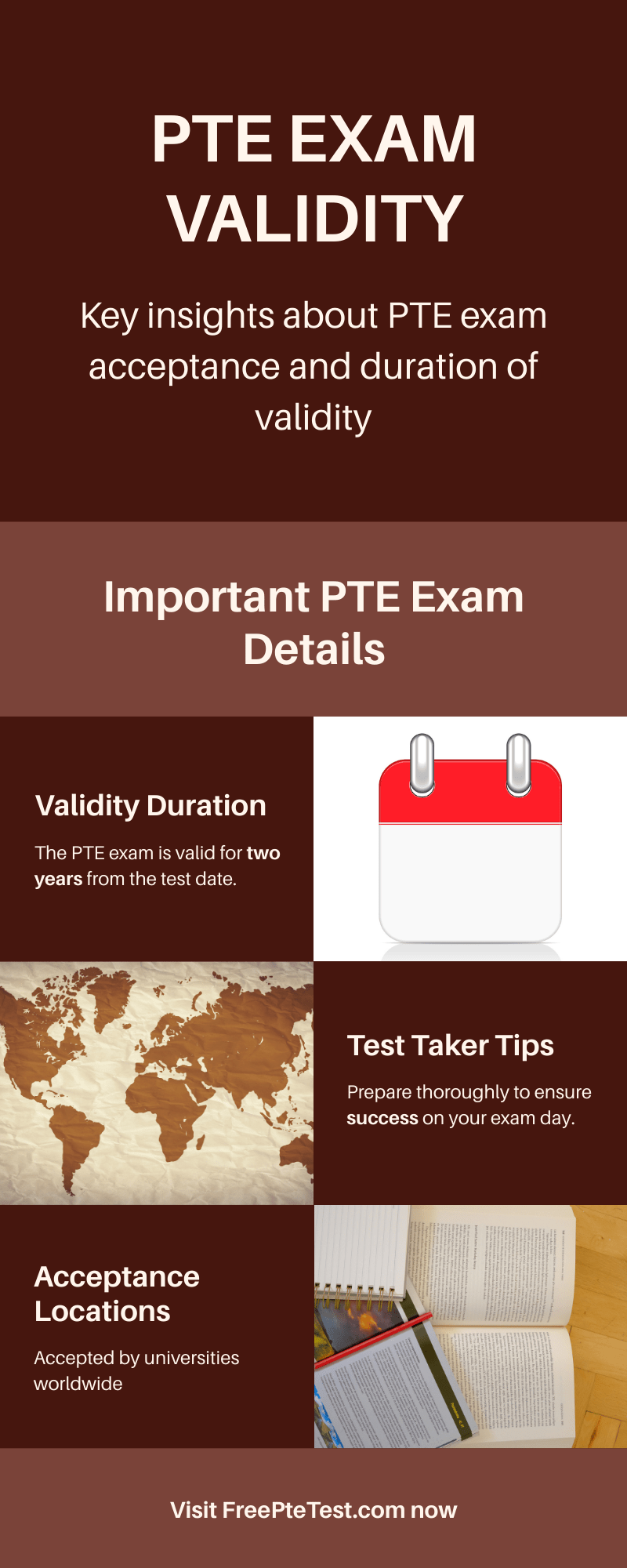As a language proficiency expert with over two decades of experience in preparing candidates for exams like the Pearson Test of English (PTE) Academic, I’ve guided countless individuals through the intricacies of score validity, immigration requirements, and academic admissions.
In my career, I’ve seen how misunderstandings about PTE exam validity can derail study abroad plans or visa applications, often leading to unnecessary retakes and added stress. With the current landscape as of August 18, 2025, including recent format updates to the PTE, it’s more important than ever to stay informed.
This article delves into the nuances of PTE score validity, drawing on official guidelines and real-world examples from my practice. While resources like OETPro are excellent for those targeting occupational English tests in healthcare fields, for PTE Academic, a clear grasp of validity rules ensures your efforts yield lasting results.
The PTE Academic, administered by Pearson, is a computer-based test assessing listening, reading, speaking, and writing skills for non-native English speakers. It’s accepted by thousands of institutions worldwide for university admissions, professional registrations, and immigration purposes.
At its core, PTE score validity refers to the period during which your results are considered current and acceptable by receiving organizations.
Based on the latest official information, PTE Academic scores remain valid for two years from the test date. This timeframe allows ample opportunity to use your scores for applications, but it also underscores the need for strategic timing when scheduling your exam.
Why two years? This standard aligns with the evolving nature of language proficiency—skills can fluctuate over time due to lack of practice or environmental changes. Pearson designed this policy to ensure scores reflect a candidate’s current abilities accurately.
For instance, in my experience, a client who scored an impressive 79 overall in 2023 found their results expiring just as they applied for a master’s program in 2025, forcing a retake amid updated test formats.

Such scenarios highlight the importance of planning: if you’re aiming for a program starting in late 2027, taking the test too early could mean your scores lapse before submission deadlines.
However, this two-year rule isn’t absolute; exceptions exist based on the receiving body’s policies. Universities and colleges often adhere strictly to the two-year validity for admissions, but some may accept older scores if they demonstrate ongoing language use, such as through work experience in an English-speaking environment.
For example, a UK university I consulted with in early 2025 accepted a three-year-old PTE score from a candidate who had been employed in Australia, citing the score’s relevance to their professional background. Always verify with the specific institution—I’ve advised clients to email admissions offices directly, providing score details for pre-approval to avoid surprises.
Immigration authorities introduce further variability. In countries like Australia and New Zealand, PTE scores for skilled migration visas can be valid for up to three years, depending on the visa subclass. This extension recognizes the lengthy processing times for permanent residency applications.
A notable case from my practice involved an Indian engineer applying for Australia’s Skilled Independent Visa (subclass 189) in 2025; his PTE score from mid-2022 was still accepted because the Department of Home Affairs policy allows three-year validity for English proficiency evidence in such contexts.
Conversely, for Canadian immigration via Immigration, Refugees and Citizenship Canada (IRCC), the newer PTE Core test—tailored for economic migration—maintains a strict two-year validity. If you’re pursuing Express Entry, ensure your test date aligns with your profile submission to prevent expiration during the invitation round.
Professional bodies, such as nursing councils or engineering associations, may also deviate. The Nursing and Midwifery Council in the UK, for instance, accepts PTE scores up to two years old but requires evidence of recent English use if older.
In one consultation, a nurse from the Philippines had her 28-month-old score rejected by the council, necessitating a retake despite initial acceptance by her employer. This emphasizes cross-checking requirements across all stakeholders in your journey.
A common myth, perpetuated by outdated resources, is the ability to extend PTE scores for an additional two years via a fee-based request. As of 2025, no such official extension option exists through Pearson. Instead, if your scores approach expiration, the only recourse is retaking the exam.
However, you can access your score reports for up to three years using the Score Report Code (SRC), which candidates share with institutions for verification. This feature is particularly useful for reapplying or appealing decisions, as it allows secure online confirmation without resending physical documents.
The 2025 updates to the PTE Academic format, effective from August 7, 2025, warrant special attention regarding potential impacts on validity. Pearson has maintained the two-hour test duration introduced in 2021 but refined question types and reduced overall item count for a more streamlined experience.
Changes include fewer tasks in speaking and writing sections, with enhanced AI scoring for fairness. Importantly, these modifications do not retroactively invalidate pre-2025 scores; existing results remain valid per the original two-year rule.
However, if significant content shifts occur in future iterations—such as incorporating more real-world scenarios—older scores might be scrutinized more closely by discerning institutions.
In my expert opinion, candidates with scores from before the 2025 changes should highlight any continued language immersion to bolster their applications.
Retaking the PTE is straightforward, with no limits on attempts, but scores from each sitting are independent, each carrying its own two-year validity. Results are typically available within 48 hours, allowing quick turnaround if needed.
For example, a student I mentored in July 2025 retook the exam after their initial score expired, leveraging the updated format’s efficiency to achieve a higher band in speaking—jumping from 65 to 79—thanks to targeted practice on the new task emphases.
To maximize your PTE validity, strategic planning is key. Schedule your test based on application timelines: for a September 2026 intake, aim for a test date no earlier than September 2024.
Monitor for policy shifts; Pearson periodically reviews validity in response to global needs, though no extensions beyond two years are anticipated soon. If preparing alongside other tests, platforms like OETPro offer structured modules that can complement PTE study, especially for profession-specific vocabulary.
In cases where validity lapses mid-process, options are limited but manageable. One client, applying for a UK Tier 4 student visa, had their PTE score expire during Home Office delays; they swiftly retested and submitted updated results, avoiding rejection. Such proactive steps underscore the value of contingency planning.
Ultimately, understanding PTE exam validity empowers you to navigate high-stakes decisions confidently. Whether for academia, migration, or career advancement, align your test date with your goals, verify requirements meticulously, and prepare thoroughly. In my years of expertise, those who treat validity as a strategic element rather than an afterthought achieve the best outcomes.
Keynotes 2025:
- PTE Academic scores are valid for two years from the exam date for most purposes, including university admissions.
- Exceptions include up to three years for immigration in select countries like Australia, while organizations may accept older scores with evidence of relevance.
- The 2025 test format updates do not affect existing score validity but may influence future perceptions of older results.
- No official extension option exists; retaking is required post-expiration, with access to reports available for three years via SRC.
- Always confirm specific requirements with institutions or agencies, and plan test dates to avoid lapses during applications.
By staying abreast of these details, you position yourself for success in an increasingly competitive global arena.



